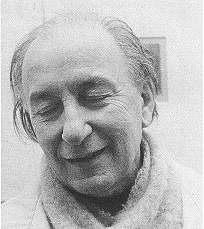KORNISS, Dezső
(1908, Beszterce - 1984, Budapest)


Painter, graphic artist and art teacher. He was a major representative of Hungarian avantgarde trends. He learnt to paint and draw in Podolini-Volkman's private school in 1921-22. At the age of 15, he travelled to the Netherlands where he was particularly influenced by Vermeer, Hals, and Mondrian, as well as by constructivity in the Netherlands, i.e. by the clean and organized order in the country. He was a pupil of István Csók and János Vaszary at the National Academy of Art in 1925-29. He spent a year in Paris in 1930 and visited the Netherlands and Belgium, too.
His avantgarde period full of experiments and inventions marked the years 1934-40 which he spent in Szentendre and Szigetmonostor. He was a leader of the European School in 1946-48. He was a teacher of figure sketching at the School of Design from 1947 onwards. He visited the Netherlands and Belgium again in 1958. He was engaged in designing sgraffito, mosaic and ceramic decorations. His works of applied graphics and posters were also of great significance.
His first art period was marked by constructive-surrealistic style in 1922-23 which was based on Soviet-Russian constructivism, Mondrian's works and French surrealism. In the second period he wanted to carry out Béla Bartók's program in fine arts. He tried to establish a balance between dramatic content, expressivity and rules of form. Constructivity, well-arranged order and decorative pictures are characteristic of his pictures. The period of 1945-55 is marked by the Szentendre program and French orientation of the European School. Major works of this perio "Szentendre", "With a Dragon" (1945), "Chanters" (1946), "Cradle", "Field Venus", "Contrast" "Crucifix" (1947) and "Cricket Wedding", a summing-up of the period, and "Winter", "Hopeless Struggle", "With a Bird". The period of 1956-63 is marked by a spontaneity of his calligraphic series (e.g. "Metamorphosis", 1963). From 1968 onwards, he returned to constructive forms and geometric shapes abstracted from Eastern-European folk-lore and to the unambiguous intellectual language of his classical constructivist period.
